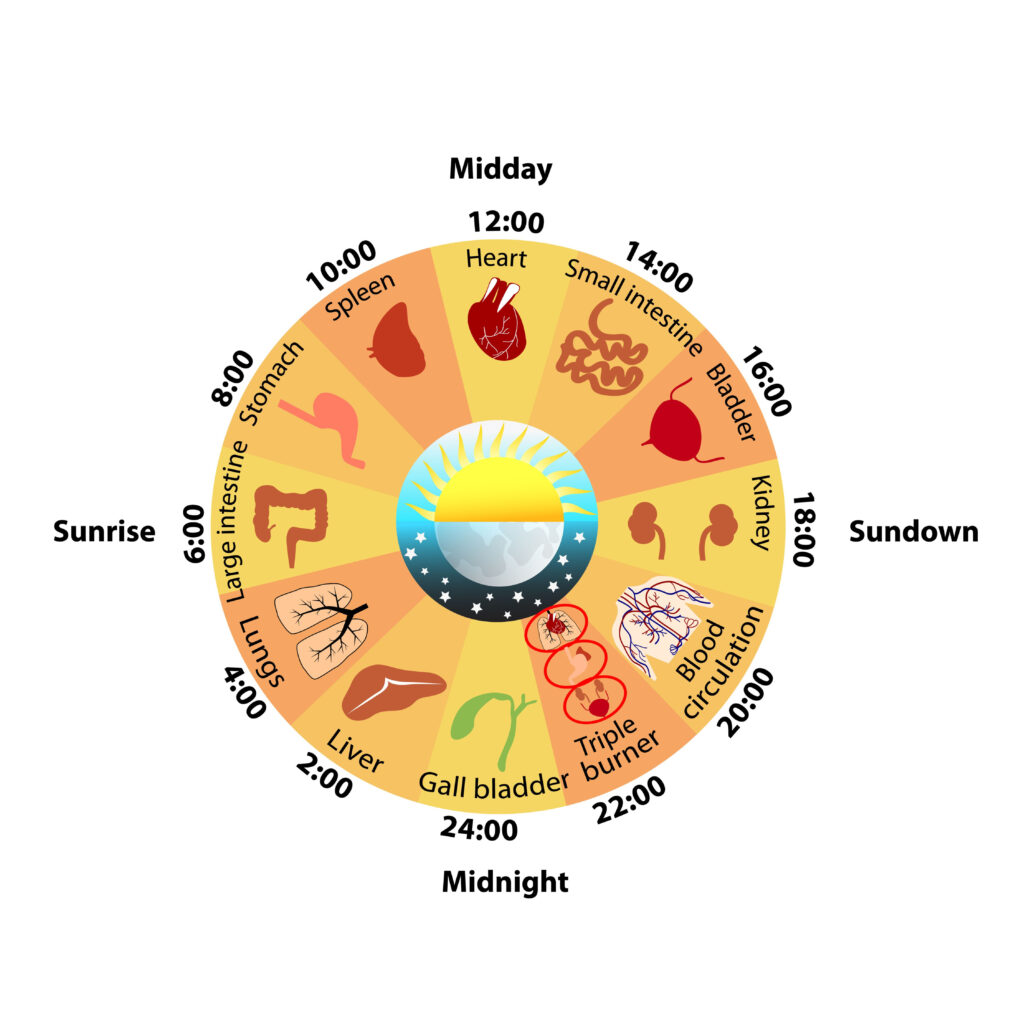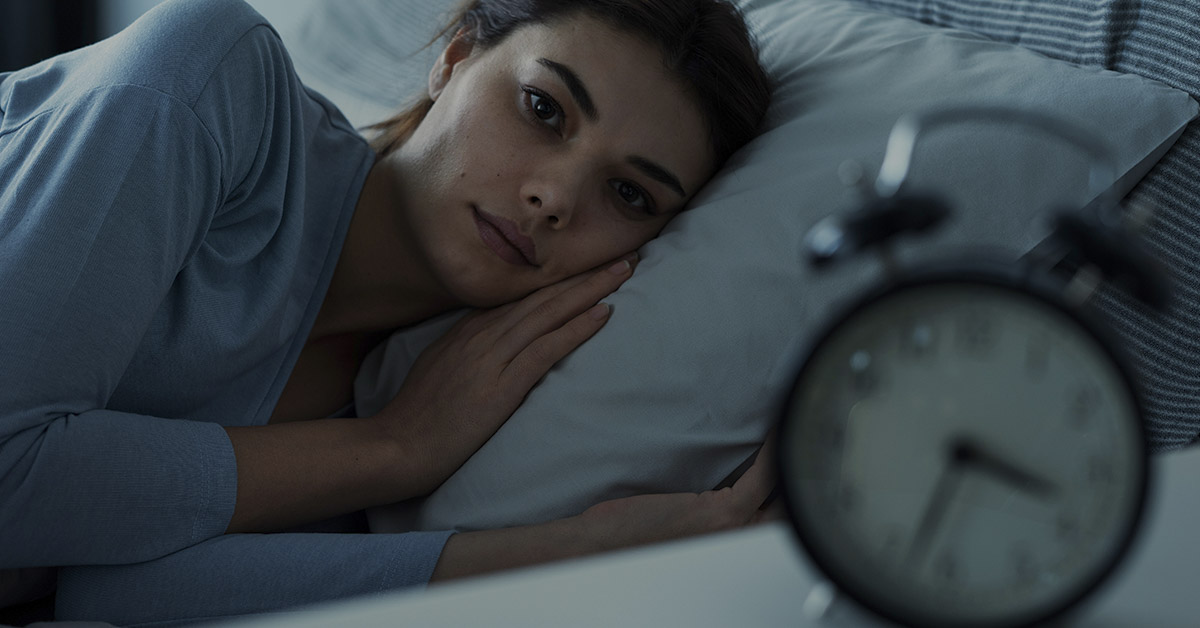The Chinese body clock outlines when organs work at peak function. This practice, found in traditional Chinese medicine (TCM), uses this clock to optimize energy by scheduling the day around specific organs and their role in the body. For example, the clock says that the lungs work best between 3 AM and 5 AM, so that’s the best time to exercise. Chinese medicine practitioners say that following the clock can benefit people’s health, but there’s little scientific proof of this theory. However, there is some truth to it, since the body does contain an internal clock that affects how people function.
What is the Chinese Body Clock?
Traditional Chinese medicine teaches the concept of Qi, which is often translated as vital energy. Qi is energy in every sense of the word. It flows through everything, including people, material objects, emotions, light, heat, and so on. TCM teaches how Qi manifests and changes in the body and how to balance Qi to create harmony and wellness. It all comes from a simple principle—a system working in harmony with all its parts results in its well-being and sustainability. However, if one part is unbalanced, the entire system falls apart. This principle applies to all systems, such as the human body.
So when there is harmony in all aspects of Qi in the body, there is health and contentment. But disharmony leads to pain and illness. For example, disharmony can come in the form of a deficiency of food, physical exercise, or social interactions, all of which are manifestations of Qi. Disharmony can also appear as an overabundance of eating, exercising, pollution, or emotions such as worry and anger. [1]
TCM has different approaches to improving well-being based on these ideas, including the Chinese Body Clock. The theory maintains that people can revitalize their health and wellbeing by working with the body’s natural energy swings and the organs’ productivity cycles. [2]
The Clock’s Intervals:
5 AM–7 AM: Chinese body clock practitioners believe that these hours provide peak functionality for the large intestine. Therefore, this time should go to honoring the excretion function of the intestine.
9 AM–11 AM: The spleen is responsible for blood cell levels in the body, protects against infection, and maintains fluid levels. Despite being part of the lymphatic system, it’s located above the stomach. So during these hours, Qi is moving upward into the spleen.
11 AM–1 PM: These hours are optimal for heart function, which represents peacefulness. Therefore, practitioners recommend avoiding stress during this time.
1 PM–3 PM: At this point, the Qi is said to expand through the small intestine, making the body more likely to stomach heavy foods.

3 PM–5 PM: These hours are for the function of the bladder and kidneys, which work together to eliminate undesirable substances from the body. Practitioners believe that kidneys maintain the responsibility of storing Qi.
7 PM–9 PM: These hours are considered optimal for the pericardium, a fluid-filled sac that protects the heart. Qi supposedly becomes regulated during this time to prevent nausea, vomiting, and other symptoms.
9 PM–11 PM: This time is ideal for the “triple burner,” which refers to the entire organ system. Therefore, the body supposedly creates the most heat during this interval.
1 AM–3 AM: This interval is important for the liver. So practitioners advise eating a light dinner earlier in the evening so the liver can focus on its cleansing functions.
3 AM–5 AM: These hours are believed to be ideal for exercise because the lungs work most optimally during this time.
Current Research About Body Clocks
Although the Chinese body clock’s effectiveness hasn’t been proven, its logic is scientifically grounded. The body has many body clocks, and working with them instead of against them can improve our health. For instance, perhaps the most well-known one is the circadian rhythm. This internal clock regulates our daily routine, such as when we become tired in the evening, awake in the morning, and hungry by lunchtime. Our body clocks involve metabolism, which affects the function of every part of the body.
However, we can fight against the circadian rhythm by staying up too late, traveling across time zones, or spending too much time with bright screens at night. This could impair the functioning of our body clocks. And research is linking deregulated circadian rhythms with a higher risk of chronic diseases.
“Epidemiological studies are consistently revealing more and more connections between modern lifestyles and our internal biological clock, and when those two clash, it can lead to development of diseases such as obesity and breast cancer,” says study author Steve Kay, Provost Professor of Neurology, Biomedical Engineering and Biological Sciences at the University of Southern California. He adds, “Humans are not evolved for night shifts, nighttime lights, and intercontinental travel. Modern-life challenges to our circadian system present a long-term threat to our health.
The Bottom Line
The Chinese body clock focuses on different organs in the body, as well as qi, or energy. The idea is that by using specific organs at certain times of the day, you can capitalize and harness qi when it’s at its peak.
However, there’s little scientific evidence backing whether or not the Chinese body clock is helpful or beneficial to your health, and while similar in concept, the Chinese body clock is not the same as other body clocks like the circadian rhythm.
Keep Reading: The 3 Types of Tea That the Longest-Living People on the Planet Drink Most
Sources
- “What Is Qi? (and Other Concepts).” Univesity of Minnesota. Christopher Hafner, L.Ac.
- “All About the Chinese Body Clock.” Healthline. Krystle Vermes. March 17, 2020
- “How our body clocks can make or break our health.” Medical News Today. Maria Cohut, Ph.D. December 13, 2018

